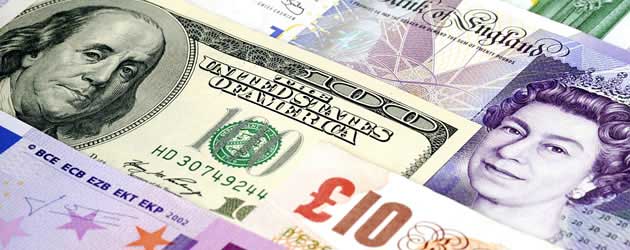
As predicted by the majority of economists, the Federal Reserve announced last night that it would be tapering its asset purchasing programme by -$10 billion to $65 billion per month.
The Pound to US Dollar exchange rate (GBP/USD) did not deviate significantly in response to the FOMC announcement, perhaps because investors were more surprised by the fact that the vote was unanimous – for the first time since June 2011 – than by the Fed’s actual decision, which was largely priced into the market.
The Central Bank statement made no reference to December’s shocking Non-farm Payroll result of 74,000, but rather featured a minor upgrade in the Fed’s estimations of the domestic economy. “Moderate economic expansion” was seen to have evolved into a “pickup in economic growth activity” and business investment was reported to have improved as fiscal policy had a “diminishing” negative impact.
The Fed also refrained from mentioning the recent turmoil in emerging market economies. However, in attempt to remove a certain level of uncertainty the forward guidance stated that the pace of asset purchases would be reduced in “measured steps at future meetings” as long as labour market conditions continue to improve and CPI inflation remains on target. This was interpreted to mean that stimulus would probably be reduced by -$10 billion each month until the scheme is fully wound down.
It was asserted that interest rates would not be raised until the Unemployment Rate hits the 6.5% threshold and perhaps not even then. This explains why GBP/USD remained above 1.6550 following the announcement.
RBNZ
The Pound to New Zealand Dollar exchange rate (GBP/NZD) jumped higher by around 1.5 cents to 2.0170 later on in the evening as the Reserve Bank of New Zealand refrained from hiking its 2.50% benchmark interest rate.
With recent comments from the RBNZ signaling that rates will be raised by around 50 basis points during the first quarter of 2014, some traders were caught off-guard by the Central Bank’s cautious decision. RBNZ Governor Graeme Wheeler commented that he expects rates to rise “soon” but voiced concerns as to the relative strength of the domestic currency.
With risk sentiment trudging in the doldrums of a huge emerging market selloff, it is not surprising that the Central Banker opted against raising rates, which could potentially knock the wind out of the domestic economy’s sails.
The New Zealand Dollar was hurt slightly by the Fed’s taper decision, which could help drive the ‘Kiwi’ down to levels that are seen as more appropriate by the RBNZ.
This leaves NZD in a strange position. The currency is unlikely to receive a boost in the form of a rate hike, unless it is first subject to further depreciations. However, as rate speculation proliferates demand for the ‘Kiwi’ is also liable to increase. It’s a strange paradox.

Comments are closed.